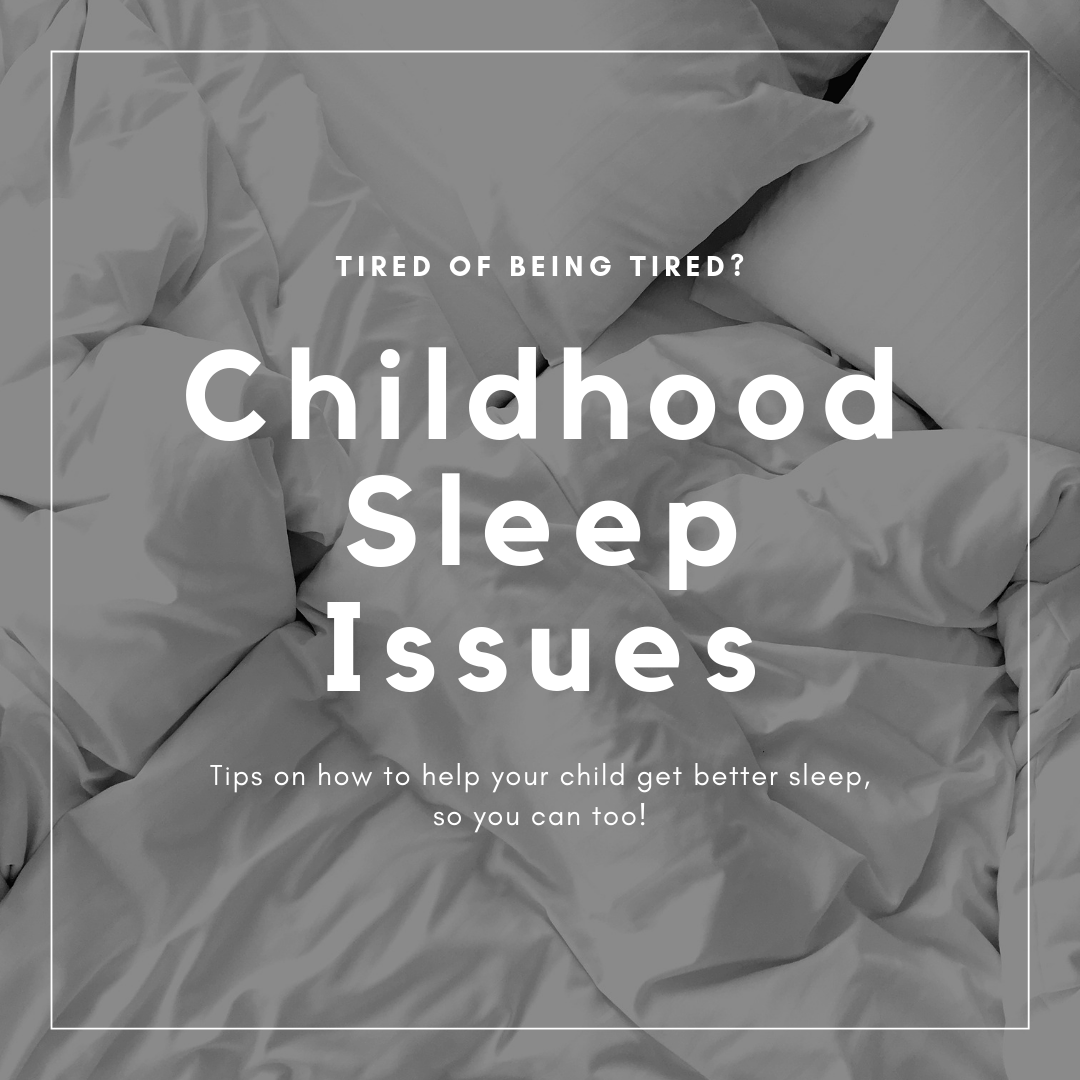One of the most common concerns I hear from parents is that their child is having trouble falling asleep, staying asleep, or both. When a child isn’t sleeping well, it impacts everybody in the house. Not only is the child not getting enough sleep to function, but parents and siblings may also have their own sleep interrupted when the child wakes up at night or falls asleep late, making it harder for everyone the next day. Adequate sleep is important for our well-being, and kids who aren’t getting enough sleep often enter a vicious cycle. The lack of sleep leads to increased anxiety and difficulty concentrating, which in turn makes it even harder to fall asleep the following night.
Healthy Sleep
Sleep is especially important for children for a number of reasons. During sleep, kids release growth hormones that they need to develop and mature. Sleep is also critical for learning: it helps children to retain and store information they’ve learned, and makes them more able to focus and learn at school the next day. Finally, sleep is important for emotional health: sleep problems can contribute to anxiety, depression, and ADHD. Studies have shown that disturbed sleep can lead to symptoms of depression, and that depressed people who aren’t sleeping well are less likely to respond to treatment than those who are getting a good night’s rest.
How much sleep do kids need?
No two kids are exactly alike, and different kids may be able to get by with different amounts of sleep. However, The National Sleep Foundation has set guidelines to help make sure your child’s sleep time is in the right ballpark. For toddlers between ages 1 and 2, the Foundation recommends 11-14 hours of sleep per day, which usually includes a daytime nap. Preschoolers (age 3 to 5) generally need 10-13 hours a day, and may still nap. By elementary and middle school (age 6 to 13), it is recommended that children sleep between 9 and 11 hours a night. Helping your child establish a healthy sleep schedule that falls within these guidelines will ensure that they’re getting the rest they need to grow physically and emotionally.
Why might my child have trouble sleeping?
Many children have difficulty falling or staying asleep at some time in their lives—this is a really common problem! Here are a few of the most common reasons children have trouble at bedtime:
Anxiety: Separation anxiety—a fear of being away from parents or loved ones—is common in younger children and sometimes manifests as a reluctance to go to bed or a fear of being alone at night. Other forms of anxiety, like generalized anxiety and OCD, can also impact a child’s ability to sleep.
Media: Many young children have very active, vivid imaginations. This can be a great strength, allowing kids to be creative and great playmates. Sometimes, though, having an active imagination can also make the lines between fantasy and reality a bit blurry. For these kids, scary movies or shows can lead to fear at bedtime, long after the TV has turned off.
Behavioral Causes: Kids and their parents might inadvertently create a routine that has to be repeated at bedtime in order for the child to feel ready to sleep. The child starts to unconsciously associate this behavior with falling asleep, and she won’t be able to drift off until it is completed. For example, a child whose mother lies in bed until she falls asleep may start to link the mother’s presence to falling asleep, and soon this becomes a requirement for bedtime every night.
Physical Causes: Like adults, some children are naturally night owls and others are morning people. A small minority of children with sleep problems may have an underlying medical reason, such as sleep apnea or restless leg syndrome. If sleep problems persist or you notice any physical symptoms such as difficulty breathing, it’s a good idea to have a doctor rule these out.
Trauma: Rarely, a traumatic event can be the cause of disturbed sleep. Children who have experienced trauma often become fearful at bedtime, have trouble falling asleep, and are bothered by night terrors or other bad dreams. If the sleep problems are accompanied by other symptoms, such as bedwetting, tantrums, or anxiety, trauma should be ruled out as a possible cause.
How Can I Help?
Sleep problems take time to develop, and they usually take some time and patience to resolve. Anxious children often benefit from a bedtime routine that is consistent, predictable, and includes opportunities to soothe and relax before bed. Creating a visual chart of the bedtime routine can also be a good way to help kids shift gears and get ready for sleep. For children with fears about monsters or other “bad guys”, it can be a big help to talk about the difference between “real” and “pretend” and offer reassurance that scary stories from TV will not happen in real life. Some children are also very motivated by reward charts. Children may “buy in” to the idea of sleeping alone more readily if they are able to set a goal for themselves to sleep independently for a certain number of nights in order to earn a prize.
Sleep problems can be exhausting for all involved, but patience and persistence can often help turn a night owl into a more peaceful sleeper. If you would like more information about sleep difficulties, check out sleep.org, or contact Davidson Family Therapy to learn how we can help!
Sources: Sleep.org, https://www.todaysparent.com/kids/helping-your-child-sleep-through-the-night/

